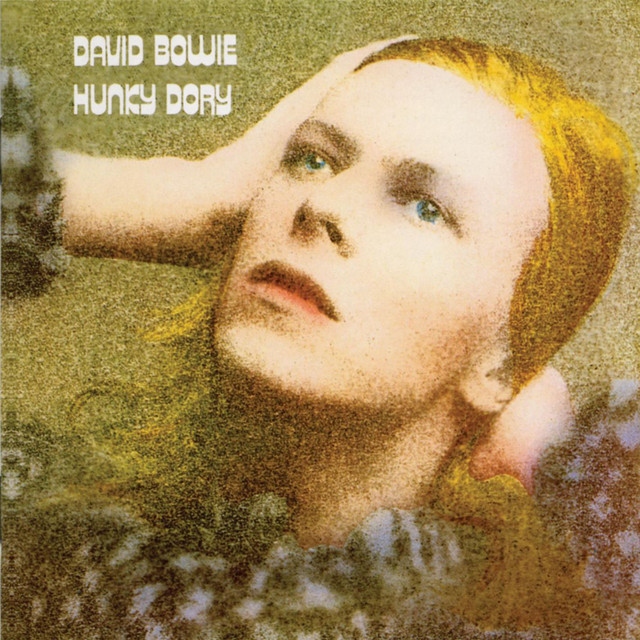David Bowie’s Hunky Dory was the moment he started shaping the sound and identity that would define him for decades. Released in December 1971, Hunky Dory might not have been a smash hit right away, but it quickly became one of Bowie’s most revered works. A mix of theatricality, introspection, and cultural references, the album gave us classics like Changes, Life on Mars?, and Oh! You Pretty Things. But beyond its well-documented brilliance, there are some lesser-known stories behind the album that make it even more fascinating. Here are five facts that show just how ahead of his time Bowie truly was.
1. Life on Mars? Started as a Parody of a Frank Sinatra Hit
Imagine hearing Frank Sinatra’s My Way and thinking, “I could do something more surreal with that”—because that’s exactly what Bowie did. The origins of Life on Mars? trace back to an early song Bowie wrote called Even a Fool Learns to Love, which used the same French melody that My Way would later be adapted from. When Paul Anka swooped in, secured the rights, and turned it into Sinatra’s now-iconic ballad, Bowie was frustrated. So what did he do? He wrote Life on Mars? using a similar chord progression but with a completely different, more cinematic narrative. The result? A song that, ironically, became even more legendary.
2. Mick Ronson’s Orchestration on Hunky Dory Was His First Time Arranging Strings
Mick Ronson is often celebrated for his guitar work, but on Hunky Dory, he proved he was a one-man orchestra. When Bowie asked him to write string arrangements for Life on Mars?, Ronson had never arranged strings before. He learned on the spot, drawing inspiration from classical composers and his own rock background. The result was nothing short of breathtaking—his orchestral work on Life on Mars?, Quicksand, and The Bewlay Brothers added a layer of grandeur that made the album sound like a surreal Broadway show. Bowie’s faith in Ronson paid off, and it helped shape his role in The Spiders from Mars.
3. Kooks Was Written as a Welcome Message to His Newborn Son—On the Spot
Bowie wasn’t just making music for himself—he was crafting songs for the next generation. After his son Duncan (then known as Zowie Bowie) was born on May 30, 1971, Bowie rushed home and wrote Kooks the same day as a tribute to his newborn. The song is full of charming, whimsical lyrics about what it’s like growing up in an unconventional, artsy household. When he performed the song on BBC’s In Concert just days later, he introduced it by saying: “I’d like to sing a song which has just been written and dedicated to my newly born son”—cementing it as one of the most personal moments in his entire catalog.
4. Andy Warhol Hated the Song Andy Warhol
David Bowie idolized Andy Warhol. Andy Warhol… did not reciprocate that feeling—at least not when it came to the song Bowie wrote for him. Andy Warhol, a folky, flamenco-tinged tribute to the pop artist, was meant to be an affectionate nod to his mentor. But when Bowie played the track for Warhol during a visit to The Factory in New York, Warhol reportedly sat in silence, visibly unimpressed. After an awkward pause, he changed the subject and started talking about Bowie’s shoes. Bowie later reflected that the encounter was a little weird but still found Warhol’s reaction fascinating in its own way.
5. Rick Wakeman Turned Down Joining Bowie’s Band—For Yes
Rick Wakeman’s piano work on Hunky Dory is phenomenal—his flourishes on Changes and Life on Mars? are instantly recognizable. Bowie, knowing he had a virtuoso on his hands, offered Wakeman a full-time spot in The Spiders from Mars. But Wakeman had other plans—he turned down the offer to join progressive rock giants Yes, where he became one of the most famous keyboardists in rock history. Imagine how different Ziggy Stardust might have sounded if Wakeman had said yes to Bowie instead!
Hunky Dory wasn’t an instant commercial success, but it was a defining moment in Bowie’s evolution as an artist. It was the album where Bowie truly found his voice, blending surrealism, personal reflection, and an obsession with pop culture into something completely his own. From its playful songwriting to its orchestral grandeur, it remains one of the most endlessly fascinating albums of all time.







